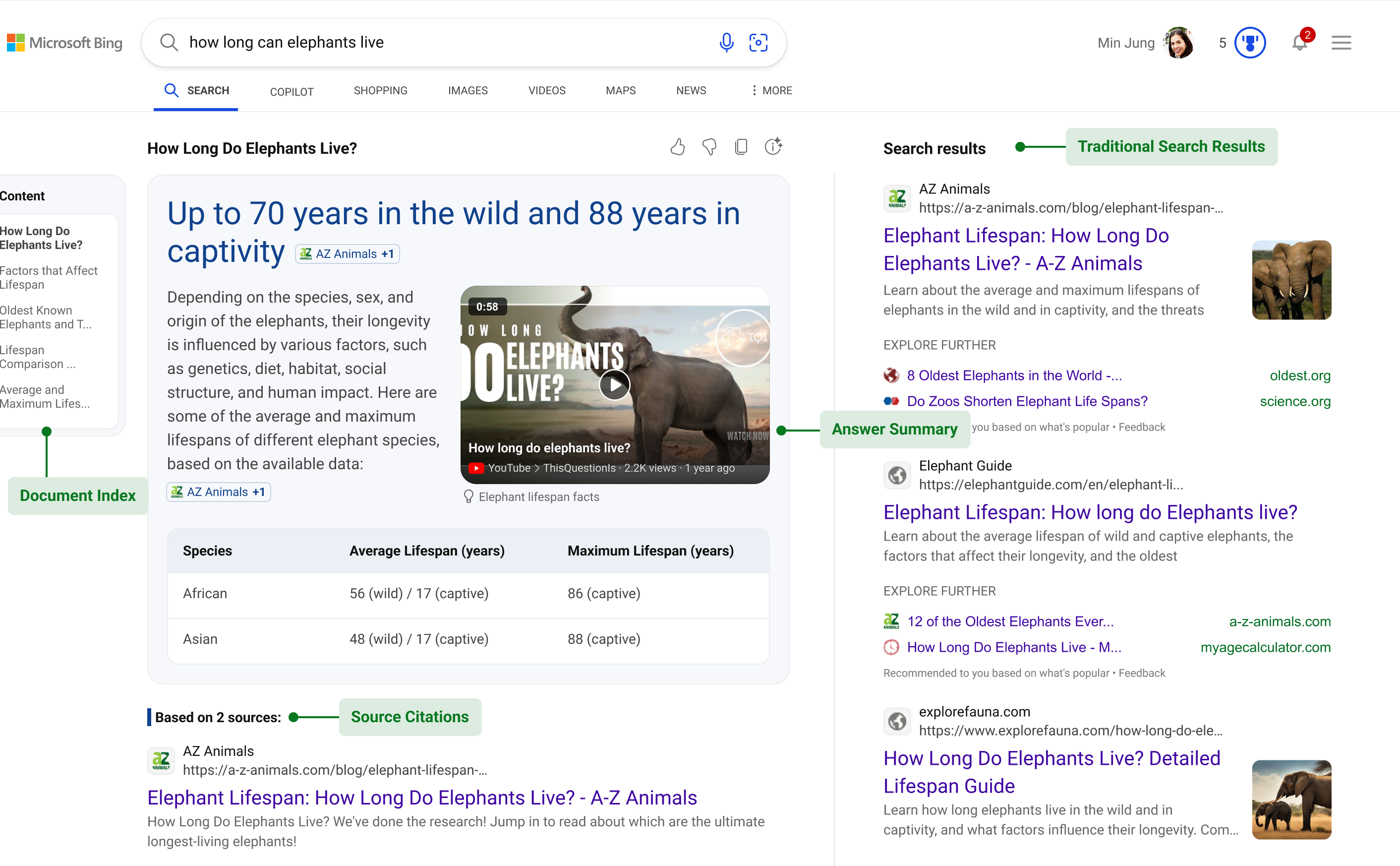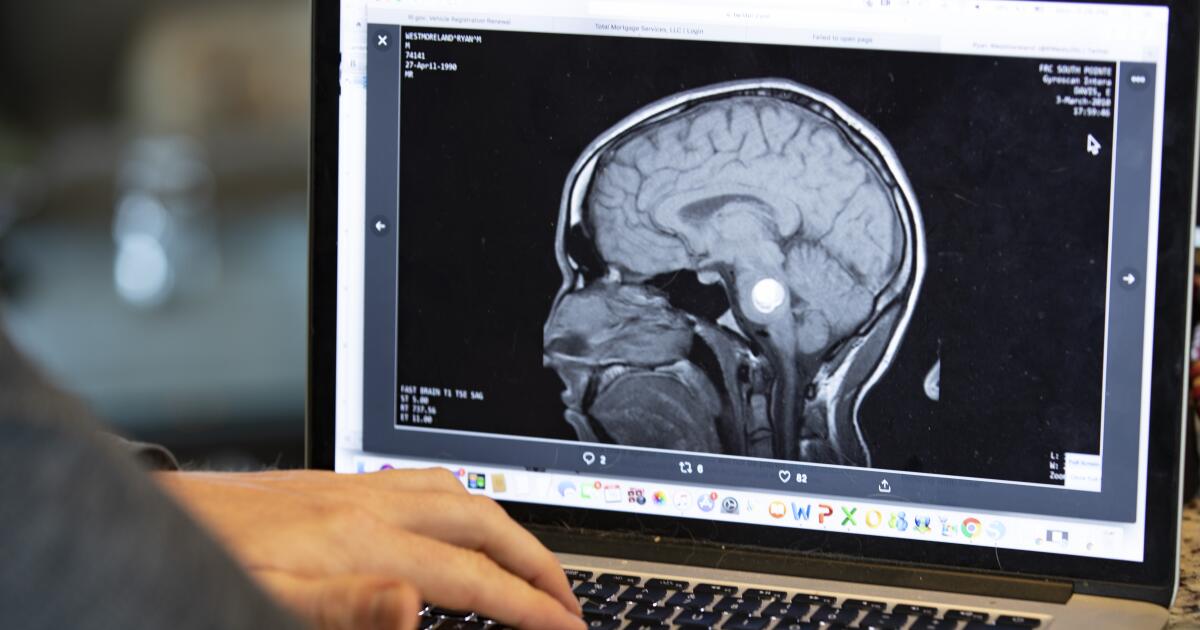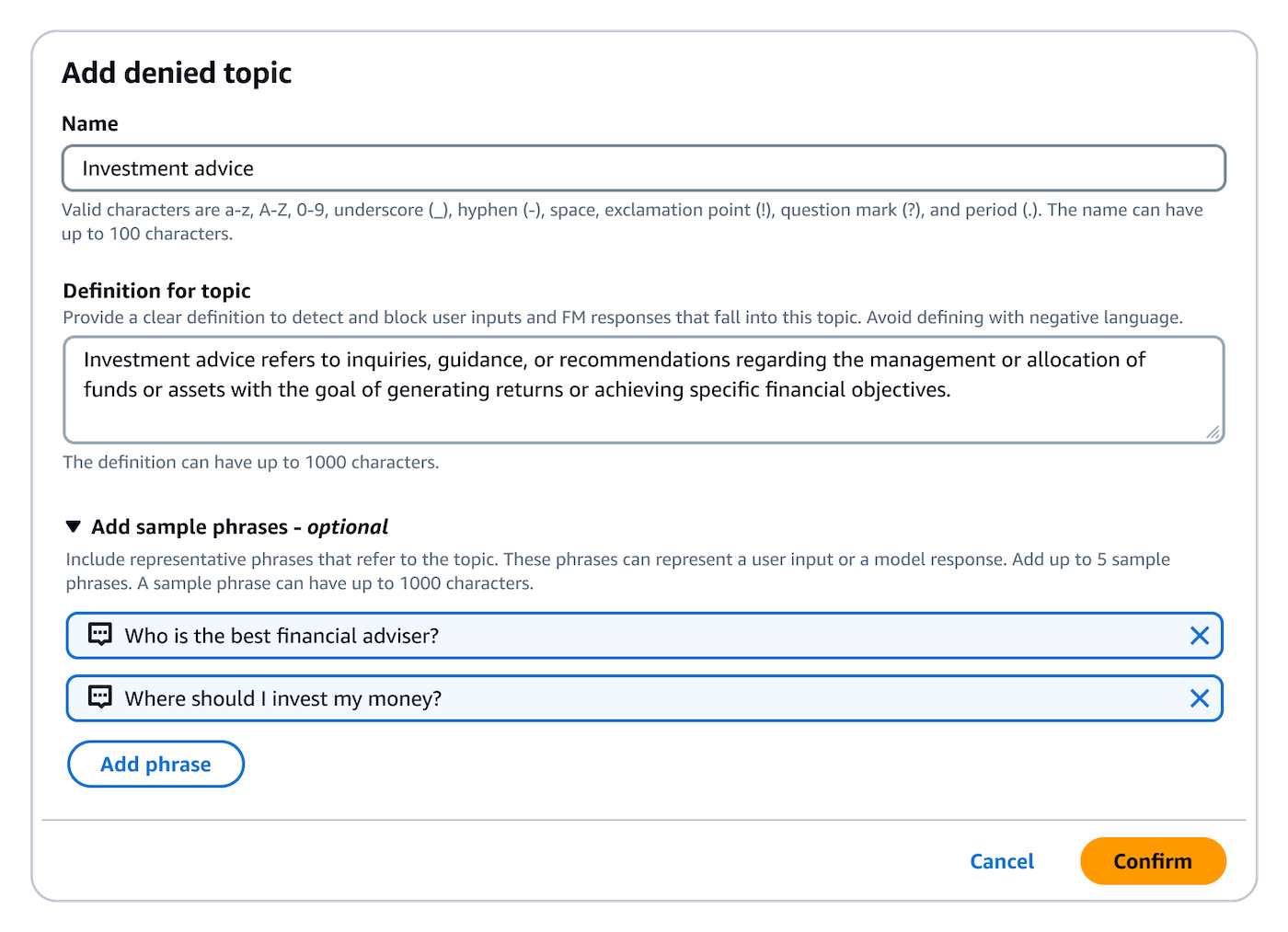Microsoft has followed Google's AI Overviews lead and launched AI-generated answers in its Bing search engine. Starting July 25, “a small percentage of user queries” will result in personalized answers to questions typed into the search bar.
“Hundreds of millions of users continue to rely on Bing to find information, get answers to their questions, and explore their curiosity,” Microsoft wrote in a Bing blog post on Thursday.
How does Bing generative search work?
Answers generated by Bing AI will appear at the top of search results for certain queries and will include sources that users can easily click to verify or learn more about the answer. Standard search results will appear in a column next to the AI-generated answer. The goal is to show the answer the user wants more quickly, Microsoft said.
Last year, Microsoft added ChatGPT-based search and chat to Bing.
“We've refined our methods for optimizing accuracy in Bing, applying those insights as we continue to evolve our use of LLM in search,” Microsoft wrote in the Bing blog post.
The Seattle giant has not revealed which AI models power Bing search, saying only that it uses both small and large language models.
The addition of AI brings Bing's capabilities closer to those of Google Search
I spoke to several people who stopped using Google Search and started using Bing specifically to avoid AI-generated answers. Microsoft might do well to learn from Copilot and Recall, which raised privacy concerns and, in the case of Recall, were delayed. On the other hand, the inclusion of generative AI in software products seems inevitable in 2024.
SEE: Meta recently revealed Llama 3.1, its most advertising-driven platformlargest and most advanced language model to date.
For businesses that rely in part on web clicks, Microsoft assures them that “early data indicates that this experience maintains the number of clicks to websites and supports a healthy web ecosystem.”
The idea is that users will continue to interact with traditional search results while Bing AI search results “increase the number of clickable links, such as referrals, in the results,” Microsoft wrote.
It's too early to say whether this will be true. Microsoft could be trying to emulate Google, which, as of January 2024, still held 81.95% of the desktop search market share, according to Statista. Bing remains in the middle with 10.51%, ahead of Yahoo with 2.67%.












